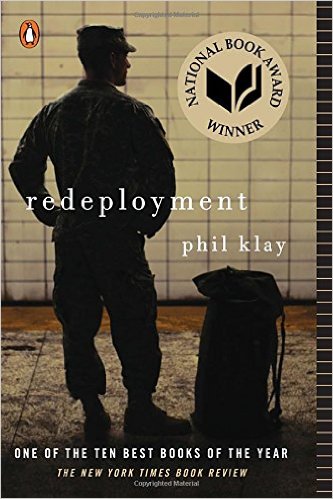In grad school I remember sitting down to watch Waltz with Bashir. It had come on Netflix and I had heard about it. I remember watching the first 10 minutes of it and either something interrupted me or it was just too heavy for the moment. Either way, I never finished it. I happened to be at my library and saw the graphic novel, which made me wonder if I shouldn’t read it before I went back to the film. So I did.
 Waltz with Bashir is the story of a young man who is trying to remember his involvement with the Sabra and Shatila massacres during the war in Lebanon in the 1980’s. The young man realizes that he’s having some mental blocks so the whole story is him trying to track down and retrace his memories by speaking with others who were there. Eventually, by piecing together the other’s war experiences, the reader and the young man are able to fill in the gaps his memory has blocked.
Waltz with Bashir is the story of a young man who is trying to remember his involvement with the Sabra and Shatila massacres during the war in Lebanon in the 1980’s. The young man realizes that he’s having some mental blocks so the whole story is him trying to track down and retrace his memories by speaking with others who were there. Eventually, by piecing together the other’s war experiences, the reader and the young man are able to fill in the gaps his memory has blocked.
War affects people in different ways and “Waltz with Bashir” certainly forwards that idea. There’s a sense of foreboding about the plot; that the readers already know more about what happened than the protagonist. Ultimately, the reader and protagonist are made very aware of what happened. The idea of how point of view affects our memory and our conscience is questioned in this graphic novel and brings up many good questions about war and guilt.
 Into Thin Air, is the account of the deadliest (at that time) event on Mt. Everest, occurring in 1996. I don’t know why, but I didn’t know about this until just this year. Jon Krakauer was part of the ill-fated expedition to climb Everest that year and his role was not only to climb the mountain, but to be there as a journalist for Outside magazine. It’s a difficult task to tell the story of a tragic event, especially one that you were involved in. Jon Krakauer does an admirable job blending a journalist’s eye with an editorial tone intermixed with his own reflections and interpretations.The tone of the book is a blend of telling the events, reflecting on the events, and bringing us into the very real emotional toll of surviving and processing the events.
Into Thin Air, is the account of the deadliest (at that time) event on Mt. Everest, occurring in 1996. I don’t know why, but I didn’t know about this until just this year. Jon Krakauer was part of the ill-fated expedition to climb Everest that year and his role was not only to climb the mountain, but to be there as a journalist for Outside magazine. It’s a difficult task to tell the story of a tragic event, especially one that you were involved in. Jon Krakauer does an admirable job blending a journalist’s eye with an editorial tone intermixed with his own reflections and interpretations.The tone of the book is a blend of telling the events, reflecting on the events, and bringing us into the very real emotional toll of surviving and processing the events. In Redeployment, I feel like truth and therapy have been combined into a powerful collection of short stories. The opening story, and title of the book, moved me beyond any other war story I’ve read. Klay takes the reader into the mind and experience of a returning vet that is so gut-punchingly real that it feels like I’m in some 3D experience. And it’s only a short story! To me this shows the effects of the artistry an author can express no matter how long his/her work is.
In Redeployment, I feel like truth and therapy have been combined into a powerful collection of short stories. The opening story, and title of the book, moved me beyond any other war story I’ve read. Klay takes the reader into the mind and experience of a returning vet that is so gut-punchingly real that it feels like I’m in some 3D experience. And it’s only a short story! To me this shows the effects of the artistry an author can express no matter how long his/her work is.